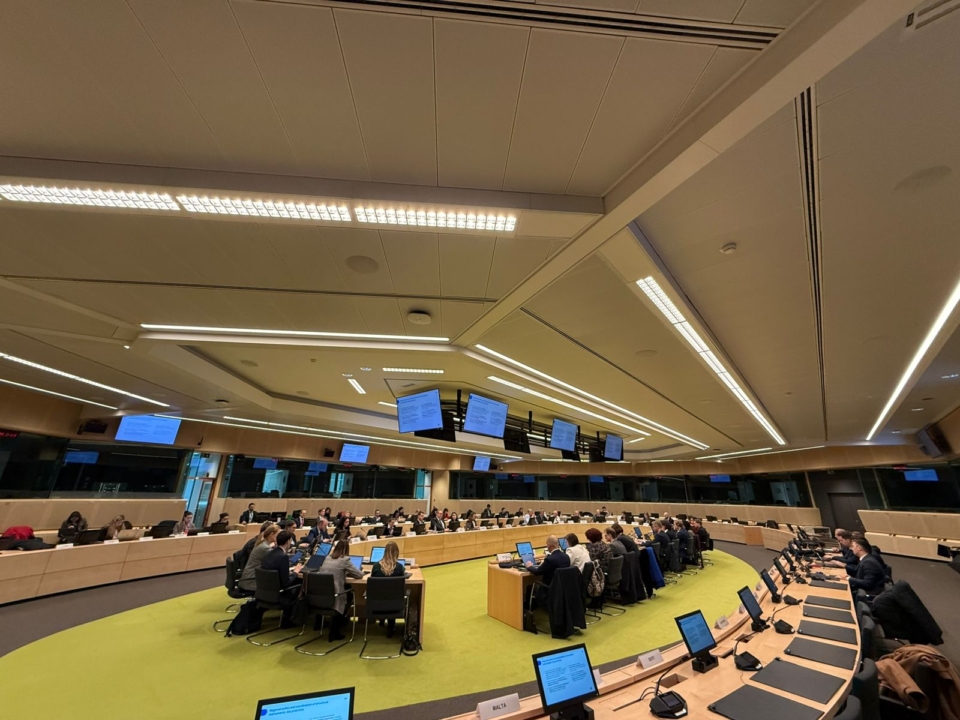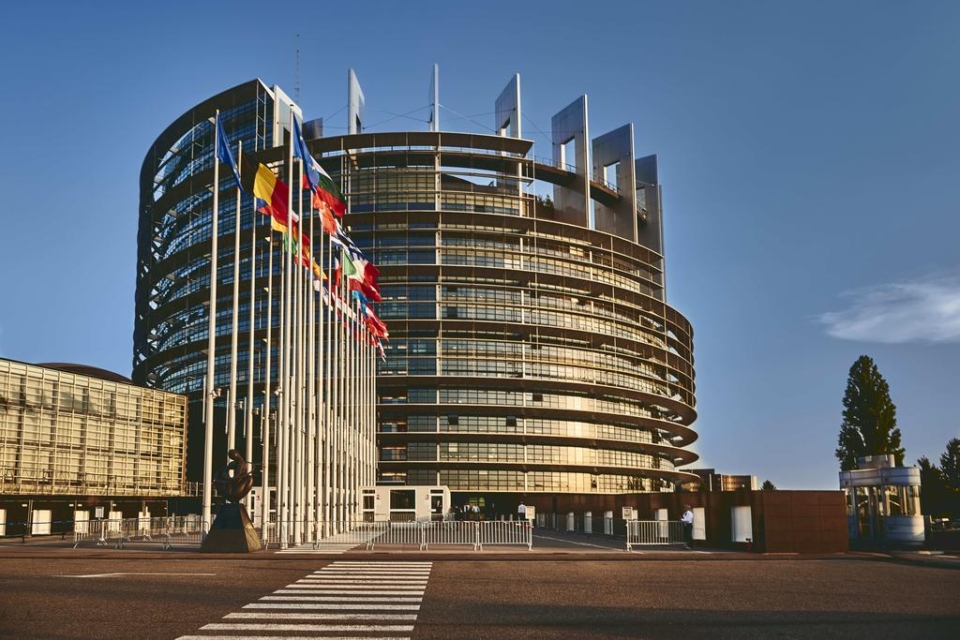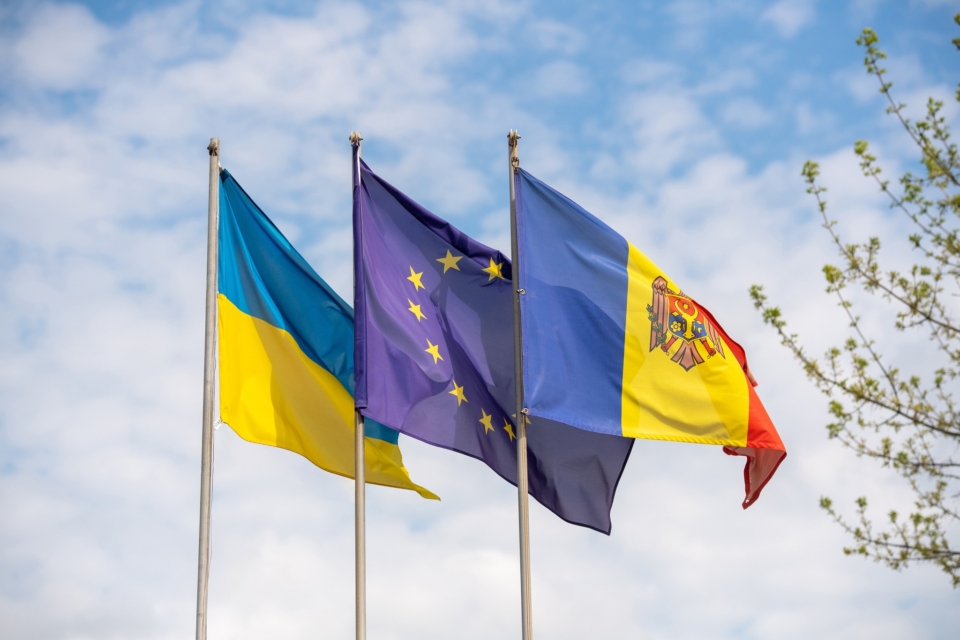A glossary of terms for EU accession negotiations is presented
Вступ України до ЄС
05.04.2024
EU candidate country is a status of a country that seeks to become a full member of the European Union, and the EU recognizes its aspirations. Ukraine acquired this status on June 23, 2022.
Screening is an official procedure whereby the European Commission, together with a candidate country for EU membership, analyzes the compliance of the candidate country’s national legislation with the relevant EU acquis (EU law). The screening is carried out under 33 negotiating chapters, which are grouped into 6 clusters (thematic blocks) in accordance with the revised in 2020 EU enlargement methodology. As a result of the screening, the priorities of key reforms (benchmarks) for the cluster as a whole will be determined. Upon completion of the screening, the European Commission will present a report, based on which the EU Council will decide on the opening of the negotiating cluster. The screening is considered the first step in the process of negotiations on EU membership.
The EU Enlargement Package is an annual strategic document on EU enlargement policy, which includes a report by the European Commission assessing the progress made by candidate and potential candidate countries. The European Commission usually publishes such a report in the fall of each year.
For example, the latest Report on Ukraine’s Progress under the EU’s 2023 Enlargement Package was published on November 8, 2023 and contained not only a general assessment of Ukraine’s progress, but also clear recommendations to be implemented during 2024 (the so-called “gray boxes”). The range of such recommendations is extremely wide, as they cover political and economic criteria for EU accession, as well as key 33 chapters in all areas of public policy.
Progress in implementing such recommendations of the European Commission directly affects Ukraine’s progress in negotiations and accelerates the overall process of accession to the EU. And, of course, the responsibility for proactivity in such a process always lies with the state, which independently determines how and through what measures to achieve progress. For example, Ukraine has approved an action Plan to implement the recommendations of the European Commission presented in the Ukraine Progress Report under the 2023 EU Enlargement Package.
The Action Plan for the Implementation of the European Commission’s Recommendations Presented in Ukraine’s Progress Report under the EU’s 2023 Enlargement Package – sets out more than 350 measures to implement 142 recommendations of the European Commission and involves more than 100 performers, including ministries, other central executive authorities, state (military) administrations, other state bodies and local self-government bodies.
The activities cover a wide variety of areas, such as the development of about 40 draft laws, about 50 acts of the Cabinet of Ministers of Ukraine, about 70 departmental regulations, support of about 40 draft laws in the Verkhovna Rada of Ukraine, implementation of certain political steps and technical support of existing national processes, etc.
The EU Acquis is a set of common rights and obligations that are binding on all EU member states. It is constantly evolving and includes:
- the content, principles and political objectives of the Treaties;
- legislation adopted in accordance with the Treaties and case law of the Court of Justice of the EU;
- declarations and resolutions adopted by the EU;
- instruments within the Common Foreign and Security Policy;
- international treaties concluded by the EU and between the Member States in the field of EU activities.
Self-screening – even before the start of the official screening by the European Commission, Ukraine conducted a self-screening, based on the results of which presented the Report on the Initial Assessment of the Implementation of the EU Acquis. The procedure made it possible to determine the state of adaptation of Ukrainian legislation to EU law, identify inconsistencies and gaps that need to be addressed in the course of negotiations and preparation for accession to the European Union. According to the report, about 3 thousand acts of EU law are currently subject to further full and/or partial implementation.
Negotiated sections/chapters of the acquis – form the basis of accession negotiations for each candidate country. In total, there are 35 (current) negotiating chapters on accession in accordance with the EU enlargement methodology covering different areas of the EU acquis. Candidate countries have to adapt their administrative and institutional infrastructure and bring their national legislation in line with EU legislation in these areas. The candidate country’s legislation and its implementation capacity in the context of the various negotiating chapters is reviewed during the screening process and regularly assessed until the closure of each chapter.
According to the new enlargement methodology, the chapters are organized into 6 clusters, where the Fundamental Areas cluster opens first and closes last.
Explanatory sessions – within the framework of the official screening, sessions where experts from the European Commission explain, section by section, what the EU acquis is in terms of legislative harmonization and proper administrative capacity.
Bilateral meetings (within the framework of the screening) – during such meetings, the candidate country presents the stage of preparation it is at in terms of adoption and implementation of EU legislation in each negotiating chapter.
Negotiating Framework – a technical assignment that sets out the guidelines and principles for accession negotiations with each candidate country. It consists of three parts:
- principles governing accession negotiations,
- the content of the negotiations
- the negotiation procedure.
The European Commission develops a draft negotiation framework, EU member states approve it, and the EU Council Presidency presents it at the beginning of accession negotiations.
Accession negotiations – negotiations taking place at intergovernmental conferences between member states and the candidate country. They address the conditions under which the country will be admitted to the EU and focus on the adoption and implementation of the EU acquis. The Acquis is divided into clusters (consisting of several sections/chapters), each of which covers a specific area of EU policy.
As a result of the screening conducted for each cluster, the EU and the candidate country will agree on priorities for accelerated integration and key reforms. When these priorities are sufficiently implemented, the cluster (covering all related chapters) is opened without further conditions and benchmarks are set for each chapter to complete the work. Chapters of the respective cluster are evaluated and closed separately.
Negotiations help candidate countries prepare to fulfill the obligations of EU membership. They also allow the EU to prepare for enlargement in terms of integration capacity. The results of the negotiations are included in the draft accession treaty after all chapters have been negotiated.
Intergovernmental conference (IGC) – in EU enlargement policy, an intergovernmental conference is a formal negotiation between the candidate country and the governments of the EU member states to discuss and agree on the provisions of the future treaty on the candidate country’s accession to the European Union. At the First Intergovernmental Conference, the negotiating delegations, the negotiating framework and the negotiating position of the candidate country are presented.
Monitoring of the negotiations – a monitoring procedure is established to assess the progress of the candidate countries in fulfilling their commitments. The monitoring is carried out by the European Commission during the accession negotiations and during the interim period after the signing of the accession agreement until the accession itself.
The Commission analyzes the level of approximation of the candidate country’s legislation to EU law, compliance with other obligations, and based on this data prepares a report on the country within the Enlargement Package, which is submitted to the EU Council for consideration.
Accession Treaty – signed by the member states and the accession country after the accession negotiations are completed. However, accession is not automatic, as the Treaty must be ratified by all member states and the acceding country. The Treaty enters into force upon ratification on a date to be determined, setting out the conditions and arrangements for accession, including the rights and obligations of the new member state, as well as adaptation to the EU institutions.
Other news
All news













